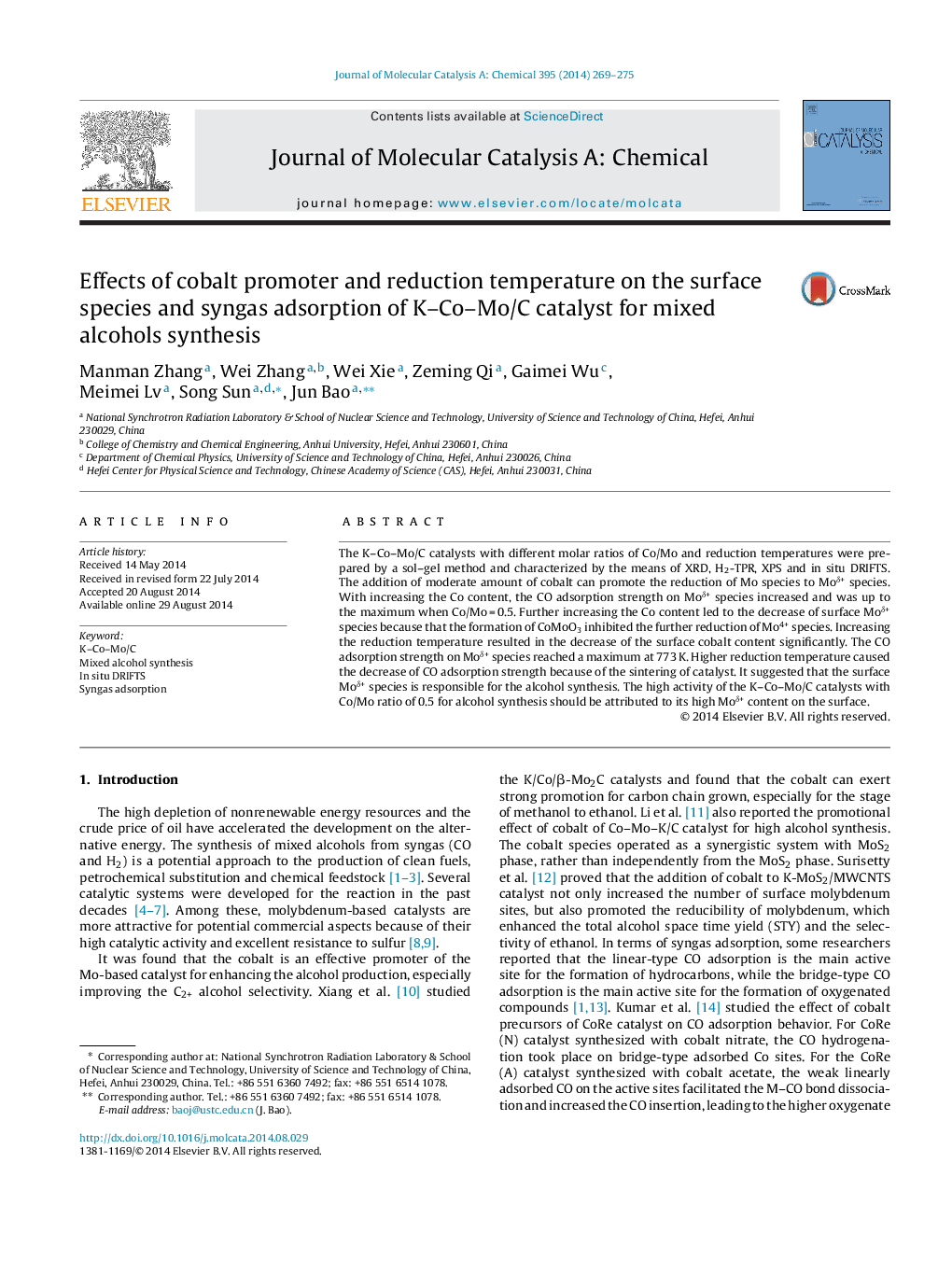| Article ID | Journal | Published Year | Pages | File Type |
|---|---|---|---|---|
| 65322 | Journal of Molecular Catalysis A: Chemical | 2014 | 7 Pages |
•The addition of cobalt promoted the reduction of Mo species to Moδ+ species.•The addition of cobalt promoted the syngas adsorption on Moδ+ species.•The Moδ+ species is suggested to be responsible for the mixed alcohol synthesis.
The K–Co–Mo/C catalysts with different molar ratios of Co/Mo and reduction temperatures were prepared by a sol–gel method and characterized by the means of XRD, H2-TPR, XPS and in situ DRIFTS. The addition of moderate amount of cobalt can promote the reduction of Mo species to Moδ+ species. With increasing the Co content, the CO adsorption strength on Moδ+ species increased and was up to the maximum when Co/Mo = 0.5. Further increasing the Co content led to the decrease of surface Moδ+ species because that the formation of CoMoO3 inhibited the further reduction of Mo4+ species. Increasing the reduction temperature resulted in the decrease of the surface cobalt content significantly. The CO adsorption strength on Moδ+ species reached a maximum at 773 K. Higher reduction temperature caused the decrease of CO adsorption strength because of the sintering of catalyst. It suggested that the surface Moδ+ species is responsible for the alcohol synthesis. The high activity of the K–Co–Mo/C catalysts with Co/Mo ratio of 0.5 for alcohol synthesis should be attributed to its high Moδ+ content on the surface.
Graphical abstractThe addition of moderate amount of cobalt promoted the reduction of Mo species to Moδ+ species. The adsorption strength of CO on the Moδ+ site reached a maximum on the catalyst with Co/Mo ratio of 0.5 and reduction temperature at 773 K. The results were consistent with the catalytic activity of the catalysts.Figure optionsDownload full-size imageDownload high-quality image (209 K)Download as PowerPoint slide
